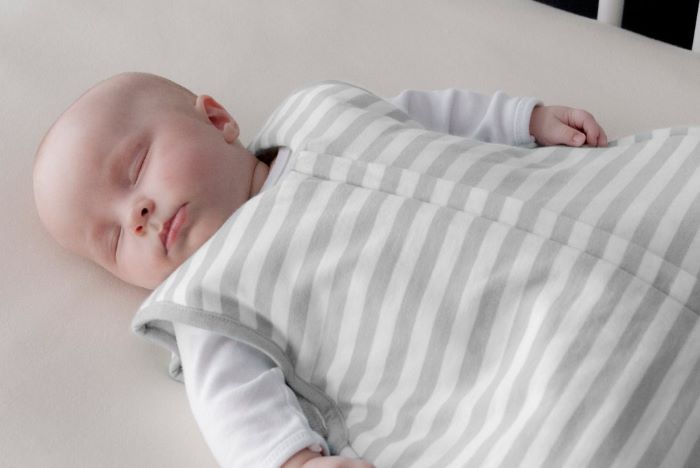Sleeping bags are a popular choice for many parents looking to keep their newborns comfortable and safe during sleep. They provide warmth and a sense of security while eliminating the risks associated with loose bedding. However, many parents wonder if sleeping bags are suitable for newborns. This article explores the benefits and considerations of using sleeping bags for your little one.
What Are Sleeping Bags?
Sleeping bags, often referred to as sleep sacks, are designed to keep babies warm without the use of blankets. They are typically made from soft materials and come in various sizes, shapes, and thicknesses. Sleeping bags have an opening at the bottom, allowing babies to move their legs while keeping their upper bodies warm.
Benefits of Sleeping Bags for Newborns
1. Safety
One of the main advantages of using a sleeping bag is safety. Loose bedding, such as blankets and quilts, can pose a suffocation risk to infants. By using a sleeping bag, parents can reduce this risk. Sleeping bags are designed to keep babies snug and secure without the dangers associated with loose fabric.
2. Comfort
Sleeping bags can offer a comforting feeling for newborns. The snug fit can mimic the feeling of being held, helping babies feel secure as they sleep. Many parents find that their babies sleep better when using a sleeping bag compared to traditional bedding.
3. Temperature Regulation
Sleeping bags come in various materials and thicknesses, allowing parents to choose one that fits the season. In colder months, thicker sleeping bags provide warmth, while lighter options are available for warmer weather. This versatility helps regulate a baby’s temperature, reducing the risk of overheating.
4. Ease of Use
Using a sleeping bag can simplify bedtime routines. Unlike blankets that can easily be kicked off, sleeping bags stay in place. They also make diaper changes easier, as many designs have zippers or snaps at the bottom for quick access.
Considerations When Using Sleeping Bags
1. Size Matters
Choosing the right size sleeping bag is crucial. A bag that is too small can be restrictive, while one that is too large may pose a safety hazard. Most manufacturers provide age and weight guidelines for their sleeping bags, so parents should always follow these recommendations.
2. Check for Tog Rating
The tog rating indicates the thermal insulation of a sleeping bag. A higher tog rating means more warmth. For newborns, it is essential to choose a sleeping bag with a tog rating appropriate for the room temperature.
A general guideline is:
0.5 tog for warm weather (room temperature above 75°F)
1.0 to 2.5 tog for moderate weather (room temperature between 68°F and 75°F)
3.0 tog for colder weather (room temperature below 68°F)
3. Fabric Choice
Sleeping bags come in various fabrics, each offering different benefits. Cotton is breathable and soft, making it an excellent choice for newborns. Some sleeping bags also have a layer of fleece for added warmth. Parents should choose fabrics that are hypoallergenic and free from harmful chemicals to ensure the safety of their baby’s sensitive skin.
4. Follow Safety Guidelines
When using a sleeping bag, it is essential to follow safety guidelines to reduce the risk of Sudden Infant Death Syndrome (SIDS). Always place your baby on their back to sleep and ensure that the sleeping bag fits snugly around the neck and shoulders. This prevents slipping and keeps the baby from becoming trapped.
When to Start Using Sleeping Bags
Parents can introduce sleeping bags to their newborns from birth. However, it is vital to ensure that the sleeping bag is designed specifically for infants and is appropriate for their size. Many parents find that their babies adjust well to sleeping bags from the start, enjoying the cozy, secure feeling they provide.
Alternatives to Sleeping Bags
While sleeping bags have many benefits, there are alternatives to consider. Swaddles are another popular choice for newborns. Swaddling provides similar benefits, as it keeps the baby snug and secure. However, swaddles should be used with caution as they can restrict movement. As babies grow and start to roll over, parents may need to transition from swaddling to sleeping bags.
Tips for Using Sleeping Bags Safely
Monitor Room Temperature: Keep an eye on the room temperature to ensure your baby is comfortable. Use a room thermometer to check if the space is too hot or cold.
Regularly Check for Wear and Tear: Inspect the sleeping bag regularly for any damage or wear. Replace it if you notice any signs of deterioration.
Consider Sleep Position: Always place your baby on their back to sleep, even when using a sleeping bag. This position helps reduce the risk of SIDS.
Choose Recognized Brands: Opt for sleeping bags from reputable brands known for their safety standards. Look for certifications that indicate the product meets safety guidelines.
Follow Manufacturer Instructions: Always adhere to the manufacturer’s instructions regarding sizing, washing, and use. This ensures the sleeping bag remains safe and effective.
See also: Are Sleep Positioners Safe
Conclusion
In conclusion, sleeping bags can be an excellent choice for newborns when used correctly. They provide safety, comfort, and ease of use while reducing the risks associated with loose bedding. By selecting the right size and tog rating, monitoring room temperature, and following safety guidelines, parents can create a safe sleeping environment for their little ones. Always consult with your pediatrician if you have concerns or questions about your baby’s sleep needs. With the right precautions, sleeping bags can help ensure peaceful nights for both babies and parents alike.
Related topics:


